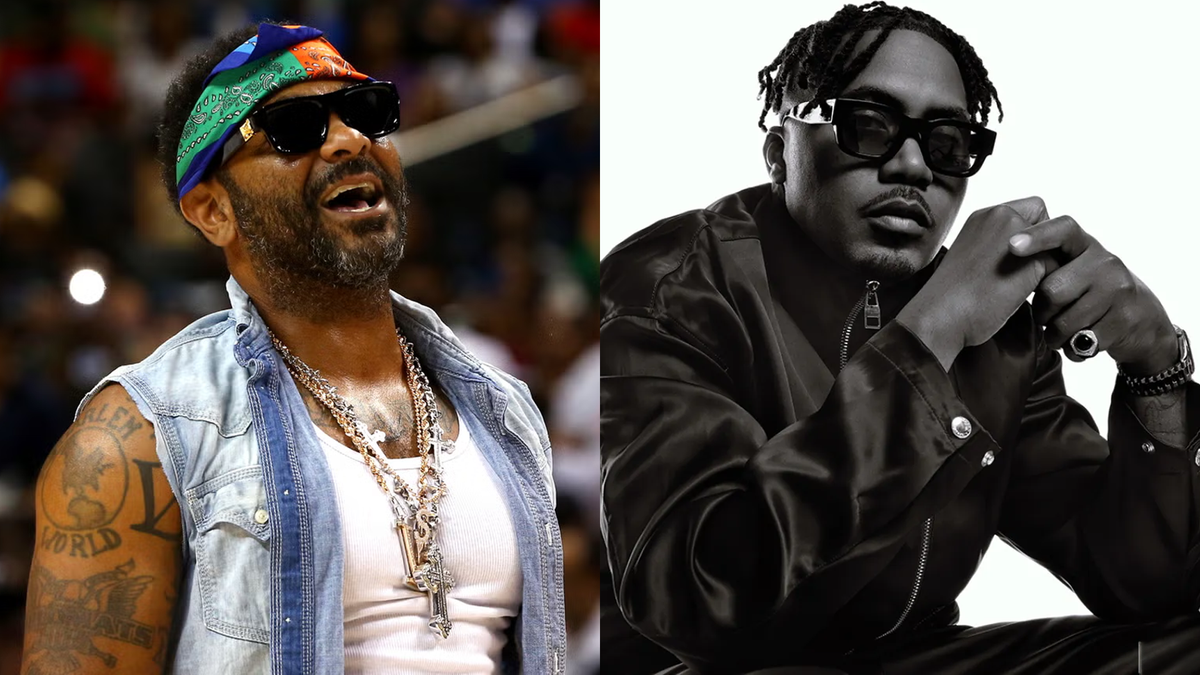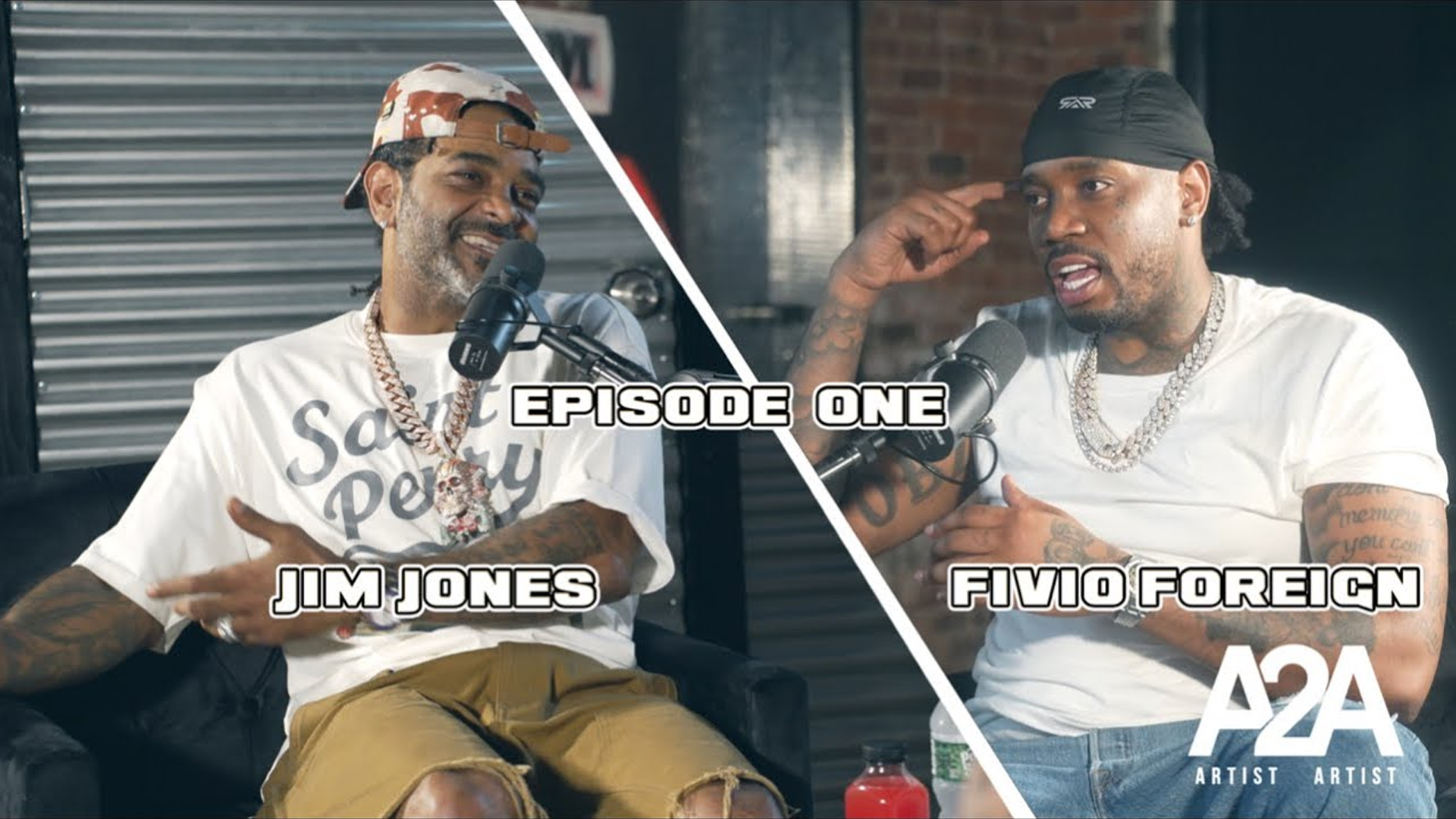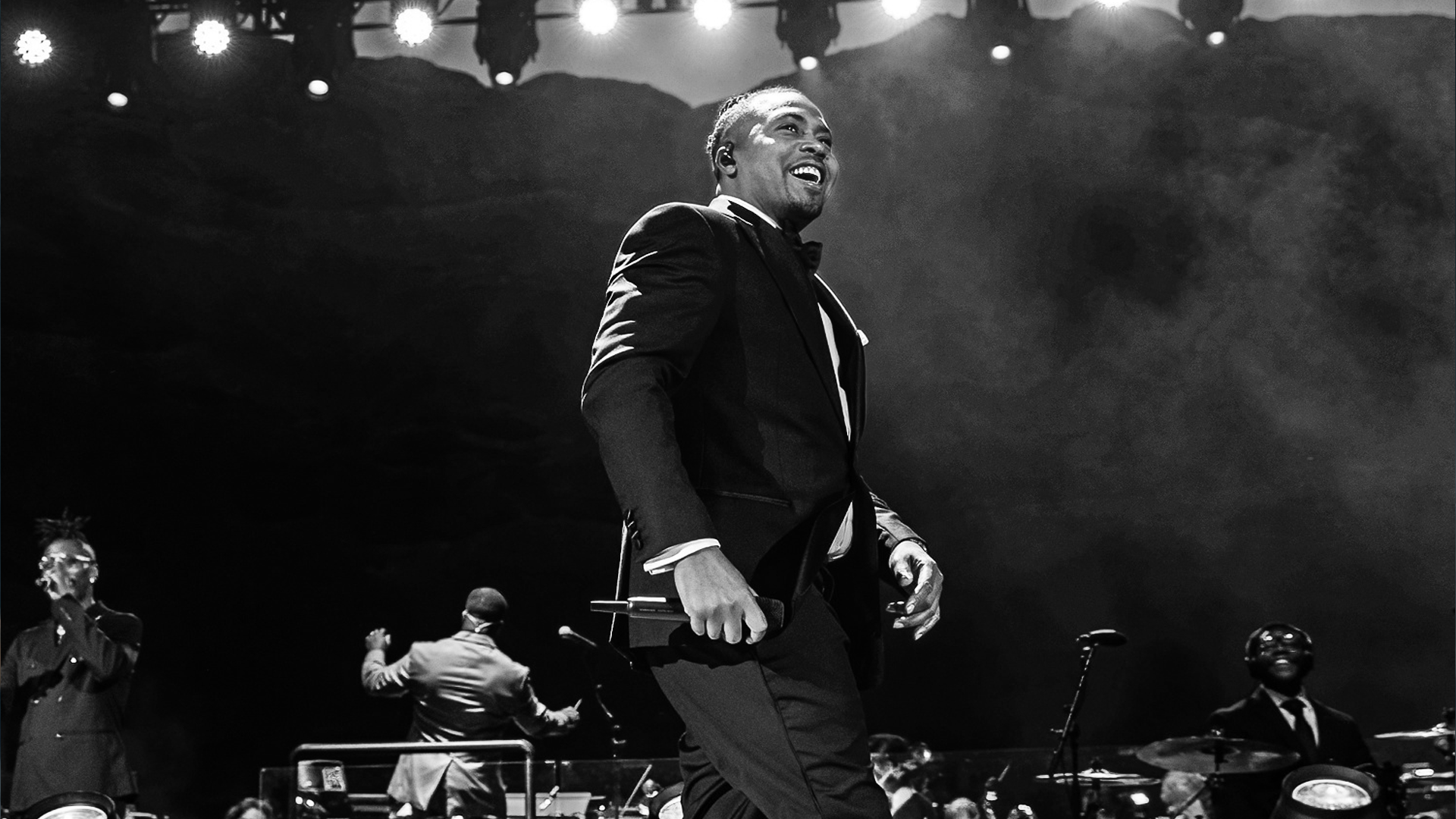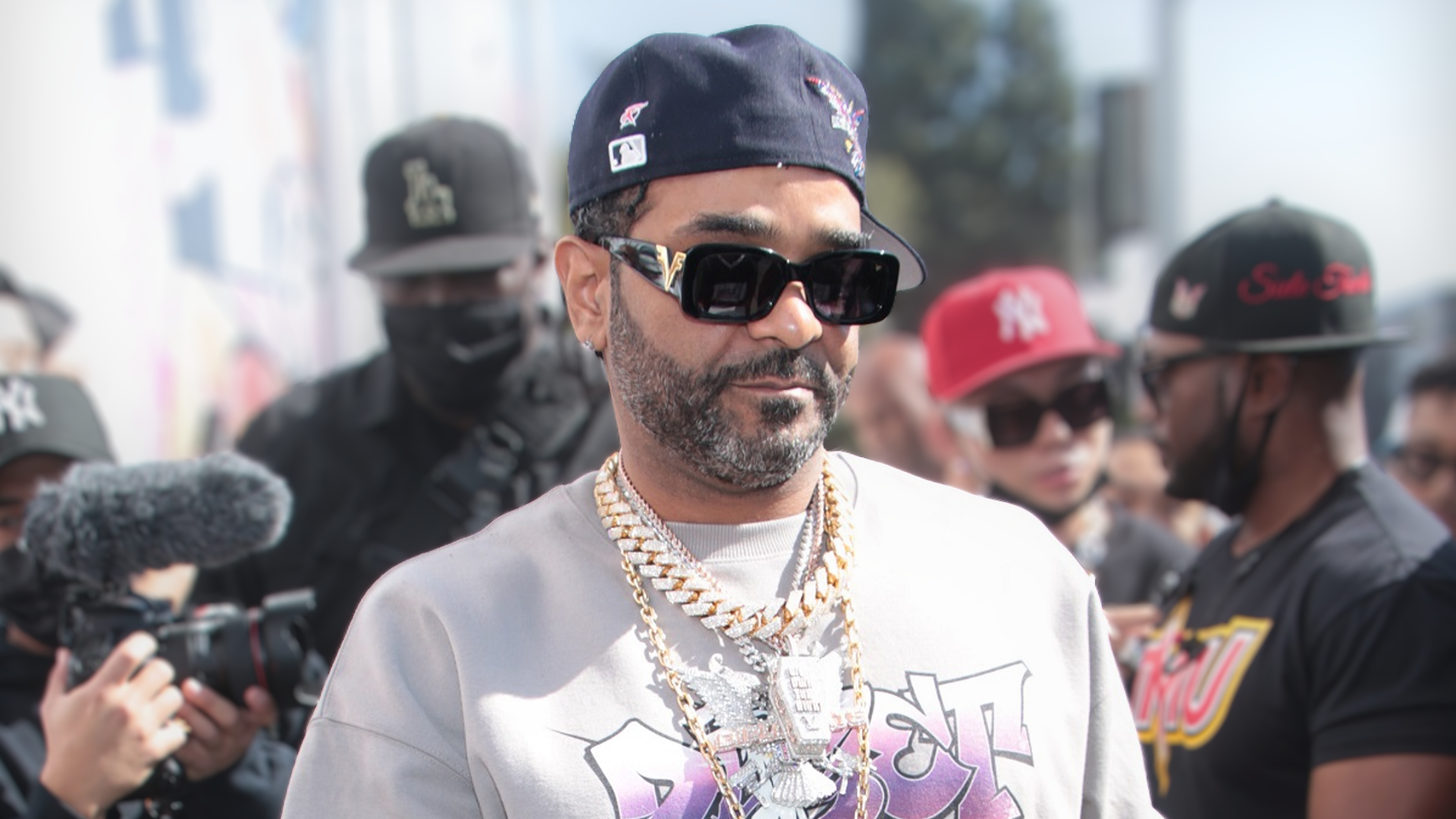Jim Jones vs. Reality: Why His Nas Comparison Proves Ego Is the Worst Drug
Jim Jones wants you to believe he’s outshined Nas. He even dragged Fivio Foreign into the conversation to back him up. But the receipts tell a different story. Billboard, RIAA, and the culture itself have already delivered the verdict: Jimmy’s ego is writing checks his catalog can’t cash.

Yet another topic that I thought I missed the time frame of topicality for that has been given new life. Jim Jones is delusional.
Hip-hop runs on bravado. Every MC worth their salt has claimed they’re the best to ever touch a mic. That’s part of the sport. But every so often, a rapper slips from confidence into pure delusion. That’s precisely what happened when Jim Jones decided to put himself above Nas, only to double down by dragging Fivio Foreign into his mess.
What started as an eye-roll-worthy claim on the Joe & Jada Podcast (“pull up the Billboard entries”) has snowballed into a full-blown debate across the culture. The argument has zero merit, but Jones has figured out that baiting Nas’s legacy is the easiest way to keep his own name trending.
The Receipts Don’t Lie
Let’s line the facts up side by side:
- Billboard Hot 100 Singles: Nas has 27 entries. Jones has 2.
- Billboard 200 Albums: Nas has 27 charting albums, with 16 in the Top 10 and 6 hitting #1. Jones has 7, with zero #1s.
- RIAA Certifications: Nas racks up multi-platinum albums like It Was Written (3x Platinum) and Illmatic (2x Platinum). Jones’s plaques are for singles like “We Fly High” (Platinum) and “Pop Champagne” (Gold).
Jones wanted to make it about Billboard. On Billboard, he gets washed CLEARLY. Full stop.
From Ego Trip to Media Strategy
If this were just another rapper overestimating himself, it would have faded out eventually. Soon after people pointed out that his commercial success is absolutely dwarfed by that of the older Jones, Jim went on Club Shay Shay and got put in his place by Shannon Sharpe, who doesn't even listen to rap music.
But Jimmy didn't stop there. He looked at all of the newfound buzz that his name was getting, and he saw an opportunity. When he launched his new YouTube podcast, Artist 2 Artist, he made Nas-bashing the centerpiece of the very first episode. His guest? Fivio Foreign, a Brooklyn drill rapper that Jim threw in front of the lions to play the part of the "new generation."
It was a setup. Jones steered the conversation to get exactly what he wanted: validation from someone the culture might see as his heir. And Fivio delivered poorly.
- Fivio claimed he grew up on Chief Keef, not Nas.
- He admitted he can’t name a Nas bar, despite being featured on a Grammy-winning Nas album (King’s Disease).
- He backhandedly called Nas a legend, only to immediately say his music wasn’t from “his era.”

Jones jumped in with the line he wanted all along: “Nas was my era. But I started a whole new era and a generation of people.” The subtext was clear: thank you, Fivio, for proving my point.
This wasn’t an organic debate. It was a calculated stunt: a host using his guest’s ignorance to prop up his own fantasy. And this, just like Jimmy's initial claims, proved not to hold up too well.
Everybody is entitled to their opinion. Opinions are subjective. But words mean things. Fivio Foreign is 35. So off the bat, he's not a part of anybody's "new generation." Also, Fivio is 5 years older than Chief Keef. Chief Keef (Sosa) started to really bubble in 2011 when Fivio would have been of legal drinking age.
Let's say Fivio was just really in tune with the Chicago underground rap scene for some reason, despite being from Brooklyn. Well, Sosa started making music in 2008. That is the same year that Fivio turned 18 years old.
That's some odd reverence to give someone who put you on a Grammy-winning album.
Mistaking Club Bangers for Legacy
Part of Jones’s argument rested on his son not knowing a Nas record. Fivio parroted the same logic with his “era” defense. But that excuse doesn’t hold. Again, Fivio is 35. Nas was peaking when he was a teenager. Dipset, whom he openly cites as influences, are Nas’s contemporaries. Pretending Nas wasn’t in his orbit is less about eras and more about selective amnesia.
And that’s the whole problem. Jones keeps confusing momentary virality with legacy. A couple of club bangers, no matter how anthemic, don’t outweigh foundational work that rewrote the rules of the genre.
The Culture’s Immune Response
The backlash was swift and brutal.
- YouTube pundits called out Fivio for “catering to Jimmy’s ego” and lying for clout.
- Reddit lit up with mockery, with fans joking, “We Fly High is your Illmatic?”
- TikTok comments were flooded with reminders like, “Nas over almost every rapper breathing.”
- Hip-hop media outlets covered it with the same tone as everyone else: disbelief that anyone could collaborate with Nas and then claim ignorance of his catalog.
Even worse for Fivio, old receipts surfaced. In 2022, he publicly defended Nas when 21 Savage questioned his relevance, calling Nas “big bro” and insisting he deserved respect. Now, on Jones’s couch, he flipped his stance entirely. That’s beyond ignorance. That’s straight-up pandering.
And while Fivio caught the flames, the culture knew who engineered the circus. This was Jimmy’s stage, Jimmy’s script, and Jimmy’s ego at work.
The Silence of a Legend
Through it all, Nas said nothing. He didn’t need to. His catalog, his accolades, and his legacy spoke louder than any clapback ever could. Fans even repurposed old Nas footage into viral clips dunking on Fivio, reinforcing the idea that Nas doesn’t need to defend himself because the culture defends him.

By staying silent, Nas positioned himself exactly where he belongs: above the noise, untouchable, and immortal.
The Bigger Diagnosis
This whole fiasco reveals three fault lines in modern hip-hop:
- Generational Ignorance: Too many younger artists think history is optional. That's something we need to work on in hip-hop. Respect for the architects shouldn’t be a choice; it should be mandatory.
- New York’s Identity Crisis: That a Brooklyn rapper and a Harlem vet would team up to minimize a Queensbridge icon says more about NYC’s crab-in-a-barrel mentality than it does about Nas.
- Attention Economy Ego-Tripping: In today’s podcast-driven culture, controversy is currency. Jimmy knows this. He keeps poking the Nas bear not because he’s right, but because being wrong gets him views.

The Final Word
Jim Jones is a street legend, no doubt. Dipset shaped fashion, slang, and the sound of an era. But Nas is a Hall of Famer. He redefined lyricism, rewrote the blueprint for hip-hop albums, and influenced every serious MC to come after him.
By dragging Fivio into his delusion, Jim Jones didn’t just embarrass himself. He set up another artist to torch his own credibility, all to inflate his own ego.
The verdict is clear: Jones isn’t protecting his legacy. He’s tarnishing it.
What’s Your Take?
This is the kind of cultural autopsy we specialize in at Black Culture Geekz. We don’t just state the facts; we expose the flawed logic behind the headlines.
- Did Jim Jones actually believe he outranks Nas, or was this all for clicks?
- Was Fivio genuinely ignorant, or just playing along with Jimmy’s ego?
Drop your thoughts in the comments—we read everything.
If you value analysis that cuts through the noise, subscribe to Black Culture Geekz. You’ll get our weekly deep dives, exclusive show notes, and access to a community that debates the culture on a higher level.